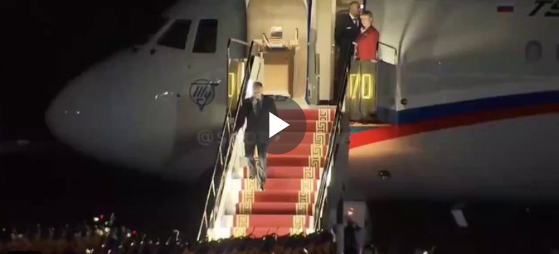Russian President Vladimir Putin recently visited Mongolia, marking his first trip to a member state of the International Criminal Court (ICC) since the ICC issued an arrest warrant for him in March 2023. The warrant accuses Putin of war crimes, specifically the illegal deportation of Ukrainian children from occupied territories to Russia. Despite this, Mongolia, which is an ICC member, did not arrest Putin during his visit. The Kremlin was reportedly unconcerned about the potential for arrest, given the ICC’s lack of enforcement power in such situations The Moscow Times
Russian President Vladimir Putin made a significant visit to Mongolia on Monday, marking his first trip to a country that is a member of the International Criminal Court (ICC) since the court issued an arrest warrant against him in March 2023. This visit is notable as Ukraine has urged Mongolia to arrest Putin and extradite him to the ICC, following charges of war crimes including the unlawful deportation of children from Ukraine to Russia.
Putin has arrived in Mongolia and received very well!He will surely not get arrested and Mongolia will probably suffer no onsequences!There we are atm!Another spit in the faces of those who thought that Putin is just so easy to be removed!Underestimating the enemy is catastrophic pic.twitter.com/2M2Tfb8TQy
— Clown (@DanaSLJL) September 2, 2024
Despite the existing ICC arrest warrant and the obligation of member countries to detain suspects, there is no effective enforcement mechanism to compel such actions, as reported by The Associated Press. The Kremlin, undeterred by potential legal challenges, expressed no concerns ahead of the visit.
Putin’s agenda in Mongolia includes a meeting with Mongolian leader Ukhnaa Khurelsukh and attending a commemorative ceremony for the 1939 victory by Soviet and Mongolian forces over the Japanese army, highlighting historical ties between the two nations.
Putin visits Mongolia despite IRCC arrest warrant
Russian flags displayed in Mongolian capital & soldiers in brightly colored uniforms lined red carpet to welcome Putin at airport pic.twitter.com/vNWHIFKKOD
— Zagonel (@Zagonel85) September 3, 2024
Mongolia’s reliance on Russia and China for essential resources underscores the geopolitical complexity of Putin’s visit. This trip is part of Putin’s broader diplomatic engagements, which recently included visits to North Korea, Vietnam, and China, where he has sought support and strategic partnerships amid ongoing Western sanctions related to the Russia-Ukraine conflict.
And so. Putin arrived in Mongolia. He was met there by a guard of honor. The West hoped for his detention within the framework of the ICC. But somehow the West has screwed up again. pic.twitter.com/1Ep3sozsPH
—
pocalypsis
pocalypseos

🅉 (@apocalypseos) September 2, 2024
This visit occurs amidst a backdrop of continued military tension, as Russia conducted an overnight drone and missile attack into Ukraine on the same day. Putin remains defiant, stating that ongoing Ukrainian offensives will not deter Russian military actions in eastern Ukraine and predicting the failure of these offensives, suggesting a potential pivot to peace talks in the future.
Major Points:
- Russian President Vladimir Putin visited Mongolia, his first trip to an International Criminal Court (ICC) member country since the ICC issued an arrest warrant against him for alleged war crimes.
- Despite the arrest warrant, which includes charges related to the unlawful deportation of children from Ukraine to Russia, there is no enforcement mechanism in ICC member countries to detain suspects.
- During his visit, Putin is scheduled to meet with Mongolian leader Ukhnaa Khurelsukh and participate in a ceremony commemorating the Soviet-Mongolian victory over Japan in 1939.
- Mongolia’s significant reliance on Russia and China for resources highlights its geopolitical importance and the complexity of enforcing international warrants.
- Concurrently with Putin’s visit, Russia launched an overnight military assault into Ukraine, with Putin expressing confidence that Ukrainian offensives would fail and lead to peace talks.
Susan Guglielmo – Reprinted with permission of Whatfinger News

 | SportsCenter
| SportsCenter


